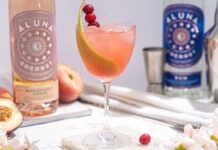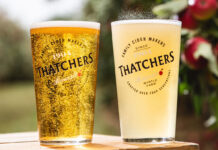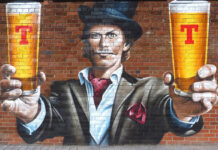From cocktails and catering to craft beer and coffee, the licensed trade has never had more to offer customers – meaning there’s never been more to learn.

But the range of products available across the on-trade means there is an opportunity for operators to distinguish their outlets through knowledgeable staff, say training firms.
Mike Cottam of wine wholesaler Inverarity Morton, which offers a range of drinks-related training courses, said that on-trade staff training not only makes the difference “between the standard and premium sale”, it’s also responsible for a customer’s overall impression of the venue.
To make the most of this, Cottam suggested that staff training should cover drinks fundamentals.
“Training should be tailored, as ours is, so students learn the fundamentals on wine and spirits but they also know how to apply that knowledge in their workplace, so knowing in detail their wine list and what wines complement which foods on the menu,” said Cottam.
“What this does is give them a lot more confidence in their daily interactions with customers and the benefits to the owner are tangible from improved wine sales to greater staff retention.”
Louise Ramsay of DG Training echoed Cottam, when she said that product knowledge is “essential” to good customer service and to increasing sales.
“Having a good knowledge of products ensures that any queries customers may have will be answered with accuracy,” said Ramsay.
With so many drinks categories, styles and brands available across the on-trade, it may not be reasonable to expect staff members to be experts on everything.
But Ramsay said outlets can still get ahead provided they have a selection of staff who are trained to serve speciality products.
“Licensed premises will benefit from being able to offer specialist drinks like cocktails/mocktails or speciality coffees,” said Ramsay.
“With a lot of competitors the more licensed premises can stand out from the crowd by offering something different the better.
“There appears to be a lot more bars offering these products now with staff who are trained in the preparation of them.”
The value of specialist training was also stressed by Michaela Ball, food and beverage trainer at the Tennent’s Training Academy.
“By being role-specific, it allows the individual to focus on one area but do it to a very high level and obtain more thorough knowledge and skills specific to their chosen subject,” said Ball.
“If a customer came into a venue to order a coffee, they would be given one made by a very skilled member of staff who would ensure that it was the best possible quality.
“Customers might then come in to a venue specifically because of how good the coffee is, or that it is consistently produced to a high standard.
“This in turn would raise sales through word of mouth and repeat business.”
Ball claimed that several businesses the Tennent’s Training Academy works with have already adopted the strategy of selecting a dedicated “champion” for areas such as cocktails, wine, whisky and coffee, putting those staff members through training in those specialist areas.
This approach, she said, ultimately leads to customers feeling “more valued and relaxed” in those venues, and argued that this can provide a “more enjoyable experience” for the customer.
“If this happens then customer satisfaction will increase and therefore repeat business will occur, raising profits and job security,” she said.

























